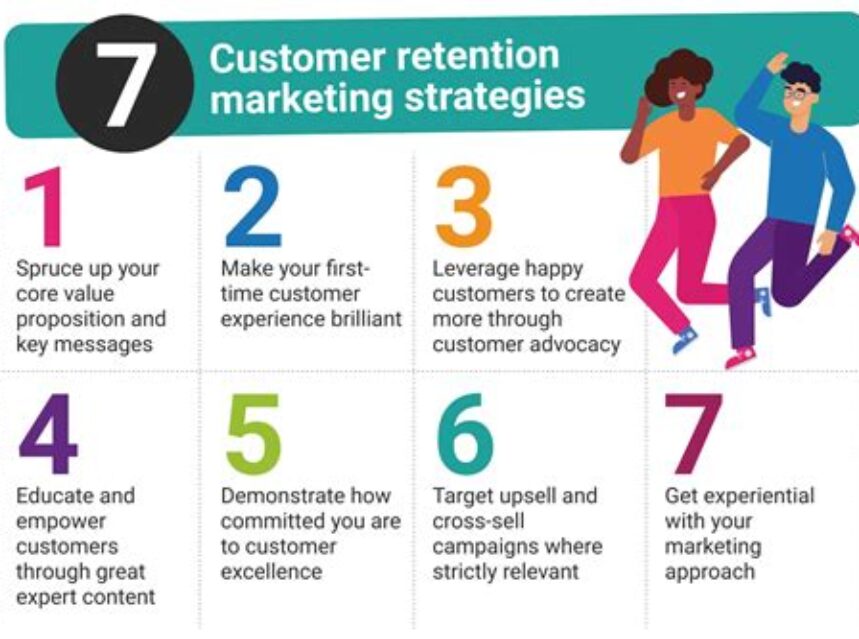Maximizing Customer Retention with Personalized Email Marketing Strategies

Learn the importance of customer retention, personalized email marketing, and segmenting your customer base. Create successful email campaigns and measure their success. Adjust your strategies for maximum impact.In today’s competitive business landscape, customer retention is more important than ever. One of the most efficient ways to retain customers is through personalized email marketing strategies. By understanding the importance of personalized email marketing and learning to effectively segment your customer base, you can create and craft tailored email campaigns that resonate with your audience. In this blog post, we will delve into the significance of customer retention, the impact of personalized email marketing, and the process of segmenting your customer base. We will also explore the steps involved in crafting personalized email campaigns and how to measure their success. Additionally, we will discuss the importance of adjusting your strategies based on these measurements to ensure maximum customer retention. So, let’s dive in and explore how personalized email marketing can help maximize customer retention for your business.
Understanding Customer Retention
Customer retention is the ability of a company to keep its customers and encourage them to continue purchasing its products or services. It is a crucial aspect of business success, as it is often more cost-effective to retain an existing customer than to acquire a new one. Understanding the factors that contribute to customer retention can provide valuable insights for businesses looking to improve their customer relationships.
One of the key factors in customer retention is customer satisfaction. When customers are satisfied with their experiences, they are more likely to continue doing business with a company. This can be achieved by providing high-quality products, excellent customer service, and a positive overall experience. Businesses should constantly strive to exceed customer expectations in order to foster loyalty and retention.
Another important aspect of customer retention is building strong relationships with customers. By understanding their needs, preferences, and purchasing behavior, businesses can personalize their marketing and communication strategies to effectively engage and retain customers. This can be done through personalized email marketing, tailored promotions, and targeted loyalty programs.
Understanding the customer lifecycle is also crucial for effective retention strategies. By identifying the different stages of the customer journey, businesses can create targeted campaigns and initiatives to keep customers engaged and satisfied. This can include post-purchase follow-ups, personalized recommendations, and proactive customer support.
Importance of Personalized Email Marketing
In today’s digital age, personalized email marketing has become an essential strategy for businesses to effectively engage with their customers. With the vast amount of content available online, it’s crucial for companies to cut through the noise and deliver targeted, relevant messages that resonate with their audience.
Personalized email marketing allows businesses to tailor their messaging to individual customers based on their preferences, behavior, and purchase history. By segmenting their customer base and delivering highly targeted content, companies can significantly increase their chances of driving engagement and conversions.
Furthermore, personalized email marketing can help to foster a stronger sense of brand loyalty and trust among customers. When recipients receive messages that are tailored to their specific interests and needs, they are more likely to feel valued and understood by the brand, which can lead to long-term relationships and repeat business.
Measuring the success of personalized email marketing campaigns is also crucial for businesses to understand what resonates with their audience and adjust their strategies accordingly. By analyzing key metrics such as open and click-through rates, companies can gain valuable insights into the effectiveness of their campaigns and make data-driven decisions to optimize future efforts.
Segmenting Your Customer Base
Segmenting your customer base is a crucial step in creating a successful marketing strategy. By segmenting your customers into different groups based on their demographics, behavior, or preferences, you can better understand their needs and create more targeted marketing campaigns.
When you segment your customer base, you can tailor your messaging to each group, making it more relevant and compelling. This allows you to create personalized experiences for your customers, increasing their likelihood of engaging with your brand.
Additionally, segmentation allows you to allocate your resources more efficiently. By focusing on the groups that are most likely to convert or have the highest lifetime value, you can maximize the impact of your marketing efforts and improve your return on investment.
By regularly analyzing and adjusting your segmentation strategy, you can ensure that you are reaching the right customers with the right message at the right time, leading to improved customer satisfaction and loyalty.
Crafting Personalized Email Campaigns
When it comes to crafting personalized email campaigns, it’s essential to understand the importance of addressing your customers directly. This means taking the time to segment your customer base and create targeted content that speaks to their specific needs and interests. By segmenting your customer base, you can ensure that each email campaign is tailored to the unique preferences of each group, increasing the likelihood of engagement and conversion.
In addition to segmentation, personalization is key to the success of an email campaign. This means using your customers’ names, referencing their past purchases or interactions with your brand, and providing content that is relevant to their individual needs. By personalizing your email campaigns, you can show your customers that you understand and value their unique preferences, ultimately fostering stronger relationships and increasing the likelihood of repeat purchases.
Measuring the success of your personalized email campaigns is also crucial in crafting effective strategies. By tracking metrics such as open rates, click-through rates, and conversion rates, you can gain insights into what is resonating with your customers and what can be improved. This data allows you to adjust your email campaigns to better meet the needs and preferences of your audience, ultimately increasing the effectiveness of your marketing efforts.
In conclusion, crafting personalized email campaigns requires a deep understanding of your customer base, a commitment to segmentation and personalization, and ongoing measurement and adjustment. By taking the time to create targeted, relevant content, you can increase engagement, build stronger relationships, and ultimately drive sales for your business.
Measuring Success and Adjusting Strategies
Measuring the success of your email marketing campaigns is crucial to understanding what is working and what needs adjustment. By regularly monitoring key metrics such as open rates, click-through rates, and conversion rates, you can gain valuable insights into the effectiveness of your email marketing efforts.
Once you have gathered data on the performance of your email campaigns, it’s important to analyze the results and identify areas for improvement. This could involve testing different subject lines, call-to-action buttons, or personalization techniques to see what resonates best with your audience.
After making adjustments based on your analysis, it’s essential to continue monitoring the performance of your email campaigns to see if your changes have had the desired impact. This iterative process of measuring success, making adjustments, and monitoring results is key to optimizing your email marketing strategies.
Remember that the goals you set for your email marketing campaigns should be SMART – specific, measurable, achievable, relevant, and time-bound. This will allow you to effectively measure the success of your campaigns and make informed decisions about how to adjust your strategies going forward.
Frequently Asked Questions
What is customer retention?
Customer retention refers to the ability of a company to retain its customers over a certain period of time. It is a key metric for measuring customer loyalty and the overall success of a business.
Why is customer retention important?
Customer retention is important because it is more cost-effective to retain existing customers than acquire new ones. It also leads to increased customer lifetime value and helps build a loyal customer base.
How can personalized email marketing help with customer retention?
Personalized email marketing allows businesses to tailor their messages to individual customers based on their preferences, behavior, and past interactions. This creates a more personalized and relevant experience, increasing the likelihood of customer engagement and retention.
What are some strategies for personalized email marketing?
Some strategies for personalized email marketing include segmenting your email list, using dynamic content, sending triggered emails based on customer actions, and leveraging data to personalize the overall customer experience.
How can businesses measure the success of their personalized email marketing efforts?
Businesses can measure the success of their personalized email marketing efforts by tracking metrics such as open rates, click-through rates, conversion rates, and overall customer engagement. They can also use A/B testing to optimize their email content and improve results.
What are some potential challenges of personalized email marketing?
Some potential challenges of personalized email marketing include data privacy concerns, ensuring accurate customer data for personalization, and finding the right balance between personalized content and over-personalization.
What are some examples of successful personalized email marketing campaigns?
Successful examples of personalized email marketing campaigns include targeted product recommendations based on past purchases, personalized birthday offers, and personalized content based on customer preferences and behavior.



